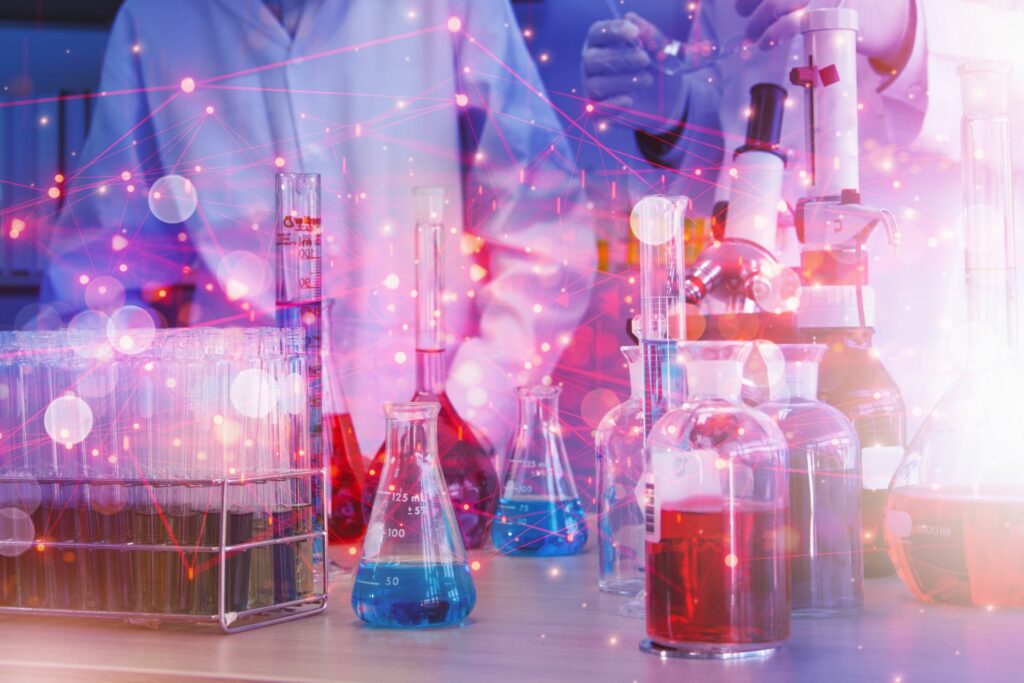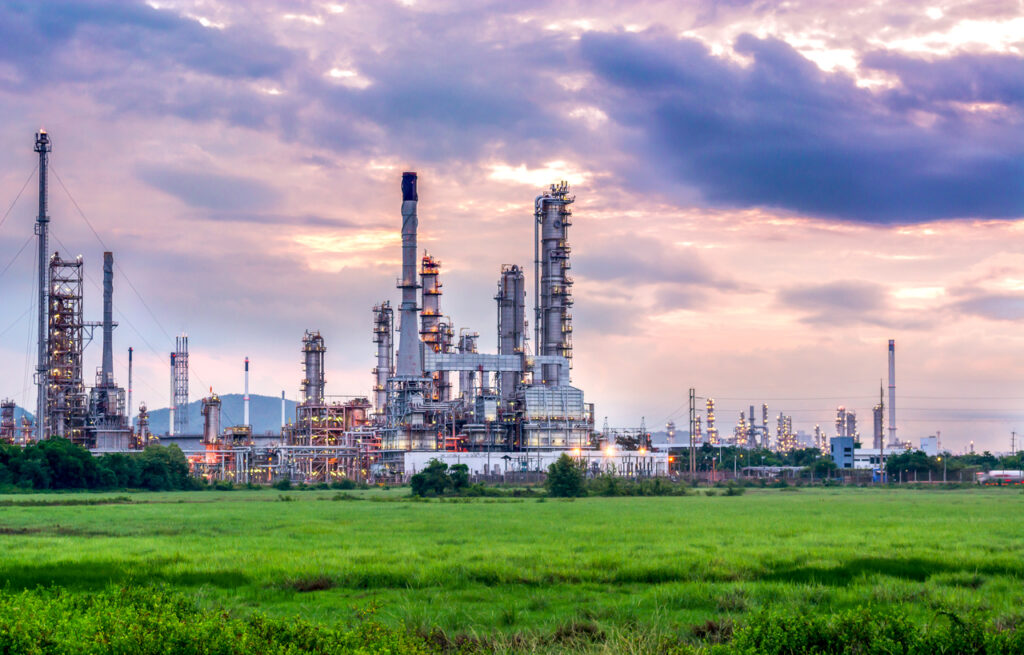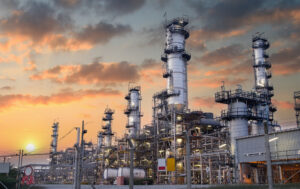Not all catalysts are created equal, and the choice between off-the-shelf solutions and custom-designed catalysts can significantly impact the outcome of your processes. This is where the distinction between generic solutions and a custom catalyst manufacturer becomes pivotal.
Custom catalysts, tailored to meet a process’s specific needs, offer unparalleled advantages in terms of efficiency, product quality, and overall operational performance.
This blog will highlight the benefits of partnering with a custom catalyst company, explore the differences between custom and off-the-shelf catalysts, their types, benefits, and applications, and explain how to select the proper custom catalyst manufacturer for your needs.
Whether in pharmaceuticals, petrochemicals, or any sector needing catalytic solutions, understanding these differences is the first step towards optimizing your processes and achieving your production goals.
4 Reasons to Partner with a Custom Catalyst Manufacturer for Your Processes

Custom catalysts represent a transformative investment for industries seeking to optimize their processes, enhance product quality, and achieve economic efficiency.
Here’s why choosing custom catalyst manufacturer is a strategic decision for your operations:
Improved Process Efficiency
Custom catalysts are engineered with precision to cater to specific chemical reactions, ensuring that every aspect of their design is intended to maximize reaction efficiency.
By tailoring catalysts to a process’s unique conditions, including temperature, pressure, and reactant characteristics, they facilitate faster reactions, higher yields, and lower energy consumption. This tailored approach streamlines production and significantly boosts overall process efficiency.
Enhanced Product Quality
The specificity offered by custom catalysts directly impacts the quality of the final product. Unlike generic catalysts, custom solutions can be designed to minimize unwanted by-products and ensure the production of purer, higher-quality products.
This level of specificity is particularly crucial in industries like pharmaceuticals and food processing, where product purity is paramount.
Substantial Long-Term Cost Savings
While the initial investment in custom catalysts may be higher than off-the-shelf options, their long-term cost savings are substantial.
Custom catalysts are designed for durability and resistance to deactivation, leading to longer catalyst lifespans and fewer replacements. Additionally, their ability to operate efficiently reduces process costs over time, including energy consumption and waste management expenses.
Flexibility & Scalability
One of the most significant advantages of custom catalysts is their inherent flexibility and scalability. Custom catalysts can be adapted to meet changing process requirements as your production demands evolve, whether scaling up operations or modifying production lines for new products.
This flexibility ensures that your catalyst solutions grow alongside your business, providing a foundation for innovation and expansion.

Custom vs. Off-The-Shelf Catalysts
The choice between custom and off-the-shelf catalysts stands at the forefront of operational strategy. This decision impacts the efficiency and outcome of reactions, long-term sustainability, and cost-effectiveness.
Take a closer look at their distinctions below.
| Custom Catalysts | Off-The-Shelf Catalysts | |
| Design | Tailored specifically to individual process requirements. | Generalized design for broad application scope. |
| Functionality | Enhanced functionality for specific reactions; optimized performance. | Standard functionality; may not be optimized for all processes. |
| Adaptability | High; can be adjusted based on process changes or desired outcomes. | Limited; less flexibility to adapt to specific needs. |
| Customization | High degree of customization to meet unique industrial needs. | Minimal to none; what you see is what you get. |
| Efficiency & Output | Improved efficiency and output through precise catalyst activity. | Efficiency and output may vary based on process fit. |
| Sustainability | Potential for increased sustainability through process optimization. | Standard sustainability; may not address specific environmental goals. |
| Cost-Effectiveness | Higher initial cost but significant potential for long-term savings and ROI. | Lower initial cost but may incur higher operational costs. |
Common Types of Custom Catalysts

Custom catalysts are sophisticated tools designed to accelerate chemical reactions in a targeted and efficient manner. Their development and performance hinge on two critical aspects: the base materials from which they are made, and their functional properties.
Each aspect is pivotal in determining the catalyst’s applicability, efficiency, and selectivity in various industrial processes.
Base Materials
The term “base materials” refers to the primary substances used to construct a catalyst. These materials form the backbone of the catalyst and significantly influence its thermal stability, durability, and overall reactivity.
The choice of base material is determined by the specific requirements of the reaction it will catalyze, including the operating temperature, pressure, and chemical environment.
Common base materials include:
- Metallic Catalysts: Metals like platinum, palladium, and nickel, known for their ability to facilitate hydrogenation and oxidation reactions.
- Ceramic Catalysts: Compounds such as alumina and silica that withstand high temperatures, making them ideal for high-temperature applications.
- Polymeric Catalysts: Organic polymers that offer versatility and can be engineered to possess unique selectivity for specific reactions.
- Zeolite Catalysts: Highly porous materials that are excellent for cracking processes and isomerization, providing specificity due to their unique pore structures.
- Bimetallic Catalysts: Combining two metallic elements to create catalysts with enhanced activity and resistance to poisoning, useful in reactions requiring high stability.
Functional Properties
“Functional properties” refers to the specific characteristics engineered into a catalyst to enhance its performance in targeted reactions. These properties include the catalyst’s shape, acidity or basicity, porosity, and ability to absorb light or electricity.
By tailifying these properties, scientists can create catalysts that are not only highly selective but also capable of driving reactions towards desired products with minimal by-products and waste.
Key functional properties encompass:
- Shape-selective Catalysts: Designed with particular pore sizes or shapes to favor the formation of specific molecules.
- Acid-base Catalysts: Tailored to promote reactions that require specific acidic or basic conditions.
- Photocatalysts: Capable of utilizing light energy to drive chemical reactions, ideal for environmental applications.
- Enzymatic Catalysts: Biological catalysts that offer unparalleled specificity and efficiency at mild conditions, especially relevant in the pharmaceutical and food industries.
- Chiral Catalysts: Designed for asymmetric synthesis, these catalysts are critical in producing enantiomerically pure compounds, a necessity in the pharmaceutical industry.
- Electrocatalysts: Specialized for electrochemical reactions. Play a crucial role in energy conversion processes, including fuel cells and electrolysis.
Industrial Applications That Rely Heavily on Custom Specialty Catalysts

Whether in developing life-saving drugs, producing fuels and chemicals, or purifying the environment, custom catalysts are pivotal in advancing efficiency and innovation.
Here’s a closer look at industrial applications and processes that rely on custom catalyst manufacturers like Applied Catalysts.
Pharmaceuticals
Complex Molecule Synthesis
The pharmaceutical industry uses custom catalysts to synthesize complex molecules, where high purity is non-negotiable. Tailored catalysts ensure the selectivity needed to achieve the desired molecular structure without unwanted by-products.
Active Pharmaceutical Ingredients (APIs)
Custom catalysts facilitate the production of APIs by optimizing reaction paths and yields. These catalysts are designed to meet stringent regulatory standards for pharmaceuticals, ensuring patient safety and efficacy of medications.
Petrochemicals
Cracking Processes
Custom catalysts are instrumental in cracking processes in the petrochemical industry, where long-chain hydrocarbons are broken down into shorter ones. These catalysts are designed to withstand high temperatures and pressures, maximizing efficiency.
Reforming and Synthesis Gas Production
Custom catalysts play a key role in reforming reactions, altering the molecular structure of hydrocarbons to produce higher-value products. They are also crucial in synthesis gas processes, facilitating the production of hydrogen, carbon monoxide, and ammonia for further chemical synthesis.
Environmental Applications
Air & Water Purification
Tailored catalysts are employed in systems designed to purify air and water, removing pollutants and converting them into harmless substances. These catalysts target specific contaminants, including volatile organic compounds (VOCs) and industrial waste products, ensuring cleaner environments.
Degradation of Organic Pollutants
Photocatalysts are specially designed to harness sunlight to degrade organic pollutants in water and air. These innovative catalysts initiate chemical reactions upon exposure to light, breaking down pollutants into non-toxic components, thereby offering an eco-friendly solution to pollution.
Energy Production
Fuel Generation
Custom catalysts are critical in converting biomass and other materials into usable fuels. These catalysts optimize conversion efficiency, supporting the production of biofuels and synthetic fuels essential for a sustainable energy future.
Hydrogen Production
Tailored catalysts are used to enhance the efficiency of hydrogen production, whether through steam methane reforming or water electrolysis. By optimizing these processes, custom catalysts contribute to developing clean, sustainable energy sources.
Automotive Emission Control
Custom catalysts are at the heart of automotive catalytic converters, transforming harmful emissions into less toxic substances. These catalysts are specifically designed to target the exhaust system’s unique chemical environment, helping the automotive industry meet stringent emission standards.
Tips for Selecting a Custom Catalyst Manufacturer

The right partnership will elevate your processes to new efficiency levels. Your choice of manufacturer should meet quality product standards and align with your strategic objectives through innovation, customization, and dedicated support.
Here’s a succinct guide to ensure you find the best custom catalyst manufacturer for your needs:
- Track Record: Opt for a manufacturer with a proven history in catalyst development. Their past projects can give you insight into their capability and reliability.
- Industry Knowledge: Deep expertise in catalyst technology and its application across various industries is crucial. A manufacturer well-versed in your specific sector can offer insights and solutions that others may not.
- Tailored Solutions: Ensure the manufacturer can truly customize catalysts based on your processes. The ability to design catalysts that meet exact specifications is fundamental to achieving optimal results.
- Innovative Approach: A manufacturer that stays at the forefront of catalyst technology and innovation will be able to offer you the most effective and advanced solutions.
- Stringent Standards: Choosing a manufacturer that adheres to the highest quality assurance practices is vital. Their commitment to quality should be evident in every aspect of their operation.
- Regulatory Compliance: Compliance with all relevant industry standards and regulations is non-negotiable. A good manufacturer should help you navigate these requirements, ensuring that your catalysts meet all necessary certifications and approvals.
- Development Process: Look for a manufacturer that values client collaboration throughout the catalyst development process. Open communication and transparency are key to customizing catalysts that perfectly suit your needs.
- After-Sales Support: Ongoing support, from troubleshooting during the initial phases of use to guidance on scaling up, is essential. The right manufacturer will stand by their products and be ready to assist you post-sale.
Global Leaders in Custom Catalyst Manufacturing Solutions
At Applied Catalysts, our blend of expertise, innovation, and dedicated support ensures your catalyst solutions optimize efficiency and productivity. Trust us to deliver not just catalysts, but a competitive edge.
Ready to transform your operations? Talk to our sales team today about your customization needs and get a free quote for your continuous process chemistry needs.
Recent Posts
Cutting Costs and Emissions: A Dual Approach for Spark Ignition Engine Manufacturers
Balancing emission reduction with cost management is crucial in spark ignition engine manufacturing. As global environmental regulations become increasingly stringent, manufacturers are compelled to adopt innovative solutions that meet air…
Read MoreCatalyst Testing Tips: Determining Activity in VOC Catalysts
VOC catalysts are pivotal in reducing harmful emissions released during industrial processes, directly influencing air quality and compliance with stringent environmental regulations. However, the effectiveness of these catalysts hinges not…
Read MoreUsing Industrial VOC Oxidation Catalysts for Air Pollution Control
In today’s industrial landscape, managing environmental impact is not just a regulatory compliance issue but a critical element of sustainable operational practices. Among the various pollutants, Volatile Organic Compounds (VOCs)…
Read More


